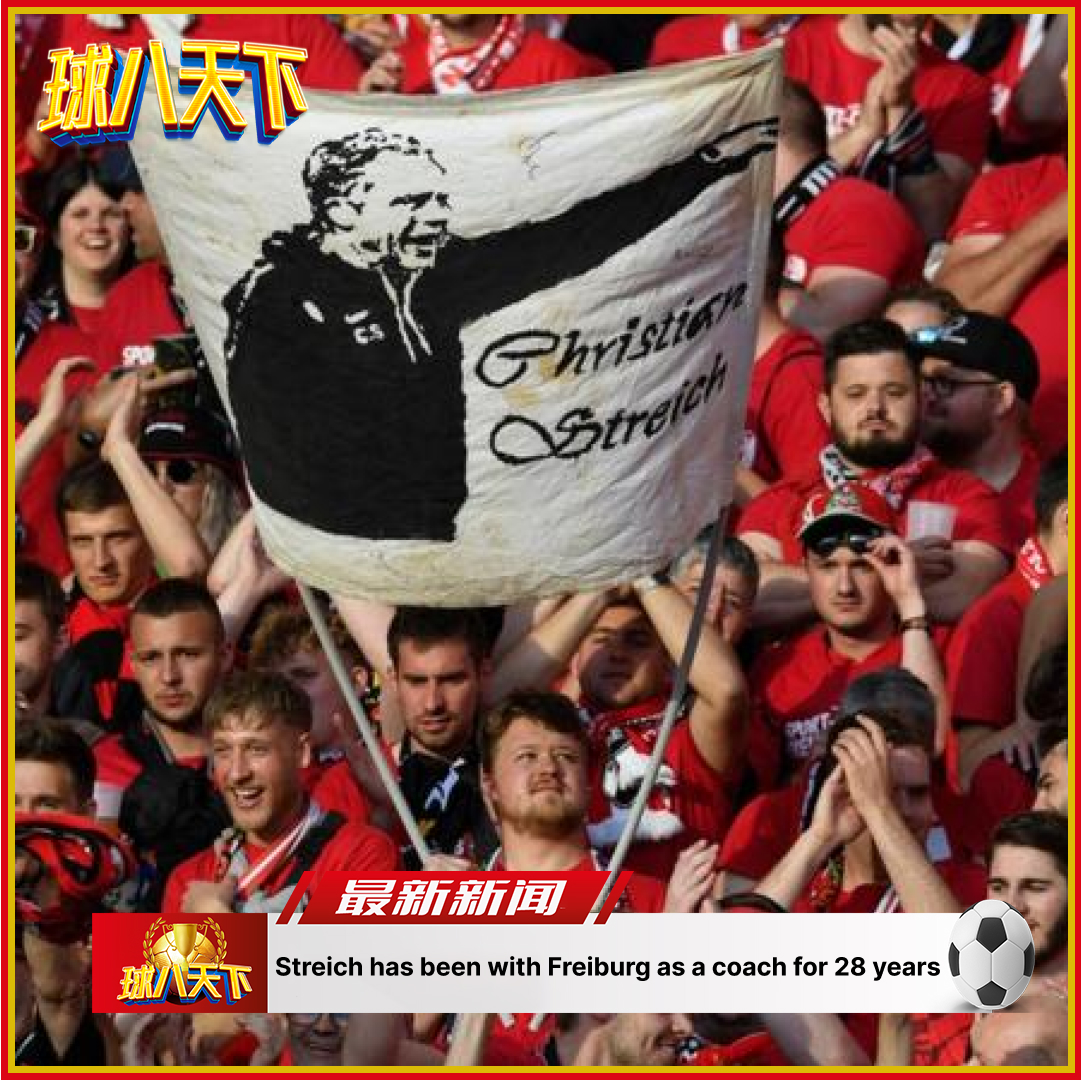Christian Streich: The skinny-dipping managerial maverick shaking up the Bundesliga

As his team sealed a 2-0 victory over Cologne in November, Christian Streich’s eyes pricked with tears.
He dabbed at them as he stared out at the pitch, then turned, punched the air and hugged each of his fellow coaches.
Note, ‘fellow coaches’. This is an important point to Streich. Those alongside him in the Freiburg dugout are not his coaching staff or assistants.
Streich – nominally the head coach – insists they have played an equal and important part in Freiburg’s achievement, and should be recognised as such.
The win over Cologne had taken the long-time relegation battlers from one of Germany’s Black Forest backwaters, to second in the Bundesliga, just a point behind 10-time defending champions Bayern Munich.
After the game, reporters constantly questioned Streich about his emotions.
“It was just the wind in my eyes,” he said.
No-one was convinced.
His team are on the move. And they are moving Streich and a whole city in the process.
Streich’s tears have flowed regularly in recent times.
In September 2021, after Freiburg played their final game at their much-loved but outdated Dreisamstadion, he clambered into the north stand, took a megaphone from the ultras and led them in an emotional lament.
In May, as he stood in front of 20,000 fans and thanked them for their support during a gut-wrenching shoot-out DFB Cup final defeat by Leipzig, his eyes glistened once again.
Announcing his latest contract extension, the 57-year-old choked up when asked what the club and their show of faith meant to him.
Streich is perhaps the Bundesliga’s most emotional coach. He is a combustible, cantankerous touchline presence, roaring on his team and occasionally berating officials and opposition.
The tears are not usual. But then these are not usual times in his 28-year relationship with the club either.
This weekend, the Bundesliga restarts with upstarts Freiburg still in second, pushing into unknown territory.
The rise of a club that has spent six seasons in the second tier since the turn of the millennium has been been steady, but consistent.
There is no big financial backing from a German corporate giant or an overseas billionaire.

Their payroll comes in at 54m euros (£48m). It is a fraction of RB Leipzig or Borussia Dortmund’s budget – 168m euros (£149m) and 215m euros (£190m) respectively.
It is a world away from the 373m euros (£331m) that Bayern plough into their squad.
But Freiburg have two advantages over the bigger spenders.
The first is continuity. Most of those in the boardroom have been there for decades.
Sporting director Klemens Hartenbach is one of the shorter serving, having been in position for 15 years. He and Streich shared a flat in the 1980s, where they listened to the Beatles and cooked together.
In the dressing room, the players spend an average of almost five years at the club, a slower turnover than everywhere else in the German top flight. There is a sense of familiarity and family around the club.
The other advantage is Streich himself.
His managerial qualities are obvious. He polishes young players and produces teams that consistently punch above their weight.
Dennis Aogo is typical of his work.
Aogo arrived at Freiburg as a raw 15-year-old back in 2002, when Streich was still a youth coach at the club.
“Without Christian Streich, I wouldn’t have become a professional football player,” Aogo says about his former coach, the gratitude clear in his voice.
“I would have gone off the rails.
“Three years before my breakthrough, I was at a crossroads. In the Freiburg academy, players got fired once they had got three warnings.
“I was allowed to stay although I had way more than three. There were parties, fights, skipping school, staying out late – the typical stuff you do as a teenager.
“But you can’t do that when you want to become a professional.”
As Aogo put it, Streich and Stefanie von Mertens, then head of the academy, saw something in him.
“They got me into line. The worst thing was when I wasn’t allowed to train,” he added.
“Streich put me on a diet, I had to reduce my weight by half a kilo per week and had to do extra running with the athletic coach.”
Streich’s regime sparked an obsession with becoming a professional. Aogo trained on his own and cycled to the training camp to watch the first team’s training sessions.
Aogo realised his ambition, playing 257 games in the Bundesliga for Freiburg, Hamburg, Schalke and Stuttgart, making 12 Champions League appearances and winning 12 international caps for Germany, one of which came at the 2010 World Cup.
Since then many more people have come to know Streich. His quirky charisma and everyman charm has made him one of the most popular figures in German football.
Streich still speaks in his distinctive hometown dialect of Alemannisch, rather than the standard German of the big cities. He wears a casual jumper and jeans, rather than any expensive designer clothes.
When he was sidelined for October’s Europa League match against Nantes after testing positive for coronavirus, Streich had to ask around if he could watch the game on free-to-air television or if he needed to subscribe to another channel.
“If so, I’ll have to find somebody who can install it for me,” he said.
In December 2021, there was more inconvenience. An away game against Borussia Monchengladbach was moved to a Sunday, leaving Streich, who had tickets to a concert by concert by guitar virtuoso Marc Ribot, bitterly disappointed.
“I wouldn’t have given away those tickets for the Champions League final or any money in the world,” he said. “I was genuinely annoyed when I heard the date of our game.”
His players did their best to make it up to their manager, scoring all six goals in a 6-0 thrashing of Monchengladbach in the first half.




